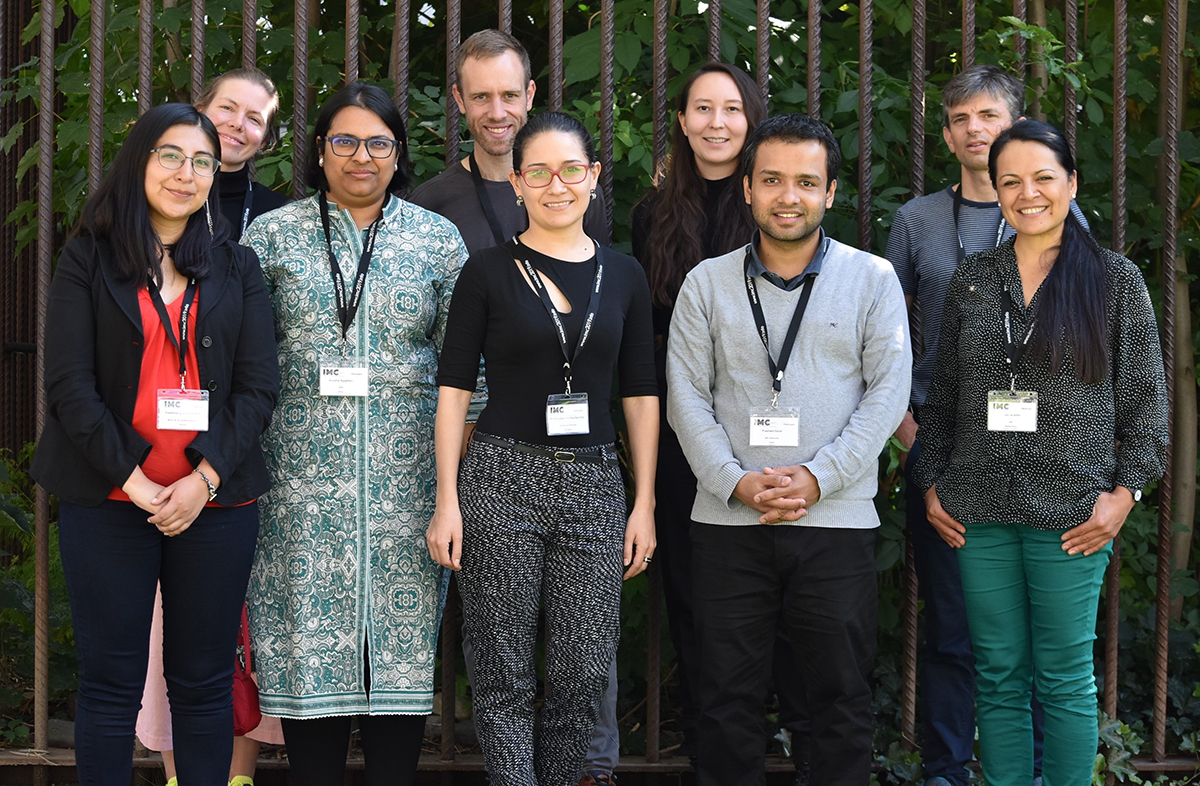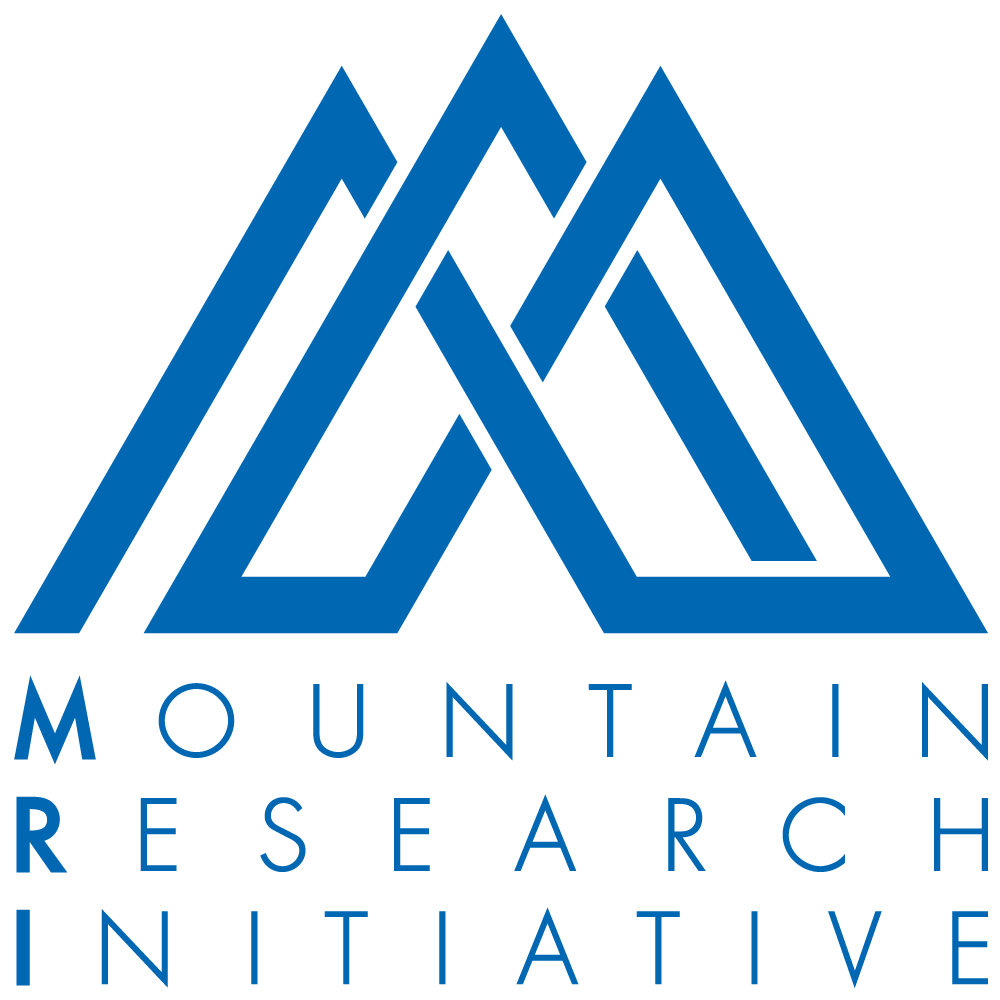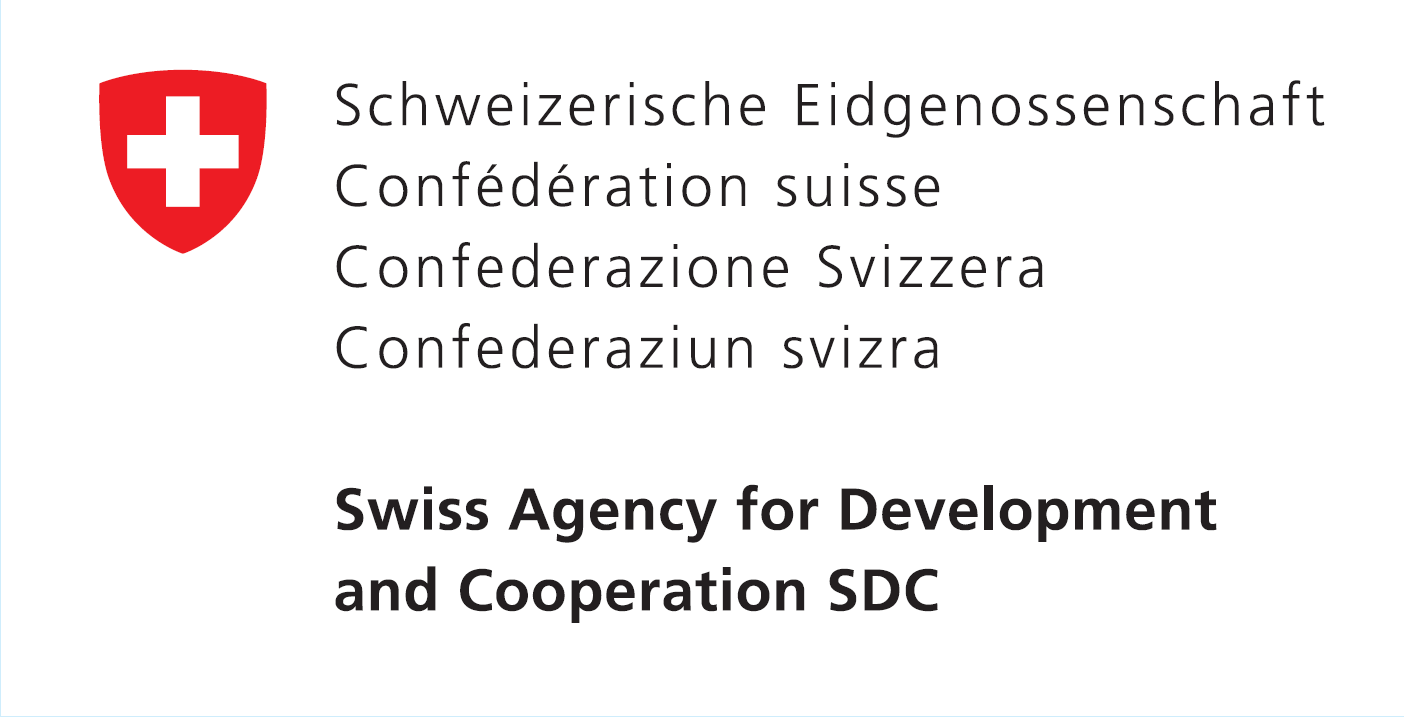Climate change and its consequences pose even greater challenges to developing countries than industrialized nations. But developing countries are severely underrepresented in bodies assessing the relevant science. A unique collaboration between the Mountain Research Initiative, University of Zurich, Helvetas, and ICIMOD aims to address this.
Developing countries are traditionally underrepresented in the process of preparing the scientific assessments on climate change, its impacts, and future risks for policymakers. To contribute towards tackling this issue, the Mountain Research Initiative, University of Zurich, Helvetas, and ICIMOD – with support from the Swiss Agency for Development and Cooperation (SDC) – have come together to create the Mentoring and Training Program in IPCC Processes for Early Career Mountain Researchers.
The program specifically targets early career researchers from developing countries with outstanding academic credentials and a research focus on climate change and mountains. It aims to support their professional development through mentoring and training over the course of the next three years, strengthening their expert contributions on mountains and climate change and enhancing their eligibility to participate as authors in future regional and global assessments for science-policy processes, such as the Intergovernmental Panel on Climate Change (IPCC).
The program kicked off in September 2019 when five of the participants – young researchers from South America and Asia – travelled to Switzerland to attend a series of training sessions held at the Department of Geography at the University of Zurich (GIUZ).
"We want to strengthen their skills for providing expert contributions on mountains and climate change," said Dr. Holger Frey, a senior scientist at GIUZ and one of the program organizers.
Site-specific knowledge is extremely valuable
The two-week training course at GIUZ and the continued coaching and mentoring by project partners over the next three years will build the capacities of program participants to take an active role in the global scientific assessments on climate change, either by writing synthesis articles about their region or by contributing as reviewers or authors to IPCC reports. The upcoming IPCC Sixth Assessment Report will include a Cross-Chapter Paper on Mountains, regions that are particularly vulnerable to climate change. "The site-specific knowledge of local researchers is extremely valuable for such reports," said Frey. "Therefore, it's essential that they are involved in the process." Not least in order to pass on the outcomes and insights of these reports to national policymakers.
"The program seems to fulfill a need," Frey added. "We had almost 100 applications and it was not easy to take the selection decision."
In addition, networking is an integral part of the program: Trainees were taken to the International Mountain Conference in Innsbruck, Austria where they had the opportunity to present their research to an international audience. They also took part in a field trip to Central Switzerland.
"It was a pleasure to welcome these five outstanding early-career researchers to the International Mountain Conference 2019 in Innsbruck," said MRI Executive Director Dr. Carolina Adler. "Alongside our project partners, we look forward to making meaningful connections with them for our changing mountains over the course of the next three years."
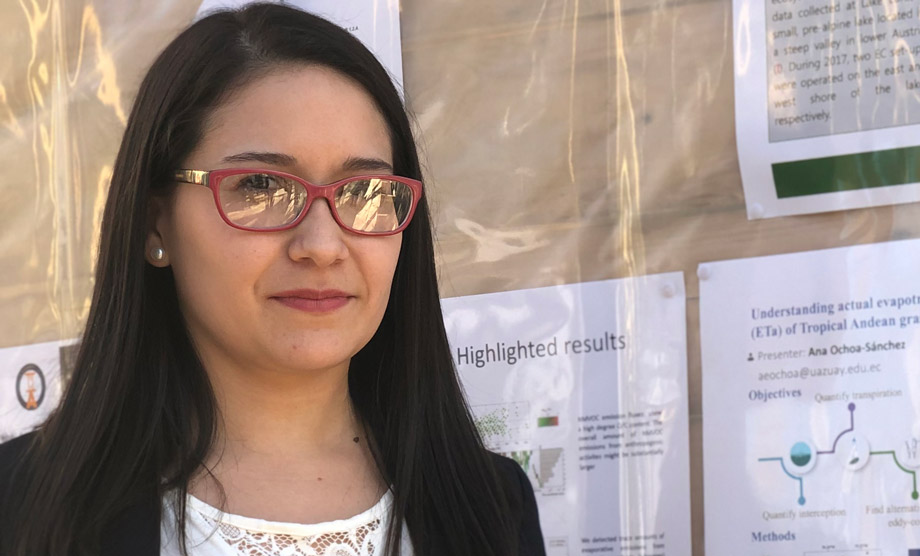
Ana Elizabeth Ochoa Sánchez, University of Cuenca, Ecuador
"Connecting science with politics and local communities: that's what I want to contribute to. Not many researchers from Ecuador get this opportunity. At the conference in Innsbruck, I got valuable insights into areas outside my own research. For the IPCC report, you really have to network and be interdisciplinary."
Ana investigates the exchange of water and energy between soil, land surface, and atmosphere in high Andean grasslands, the so-called 'páramo'. The ecosystems of these regions above the continuous forest line provide essential ecosystem services for large cities in Ecuador and Peru.
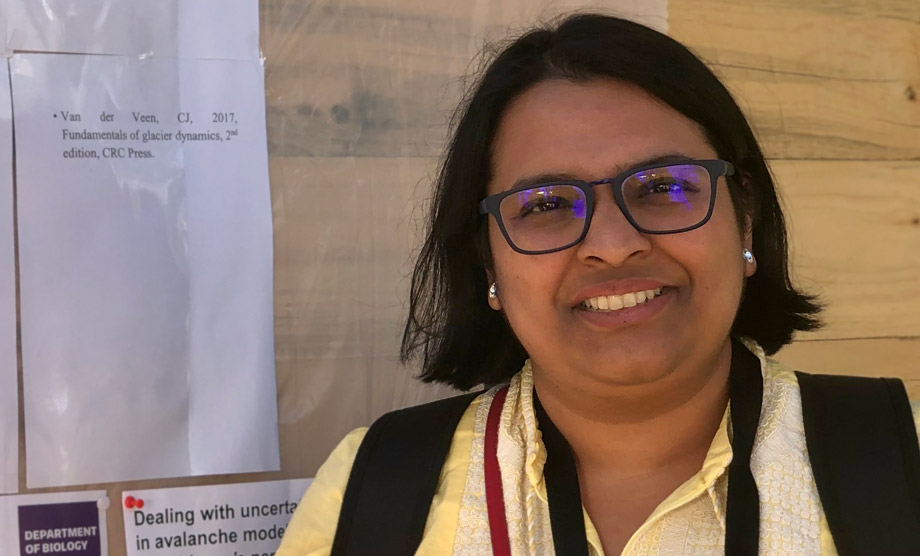 Anubha Aggarwal, The Energy and Resources Institute, New Delhi
Anubha Aggarwal, The Energy and Resources Institute, New Delhi
"The guidance we receive with this training is simply priceless. All instructors have so much experience and are so open to sharing! Now I know what the gaps in the IPCC report are and how I can contribute to them."
Anubha uses measurement of the glaciers' surface velocity to estimate their thickness and mass balance in the Himalayas as well as in Antarctica, particularly in the context of global climate change.
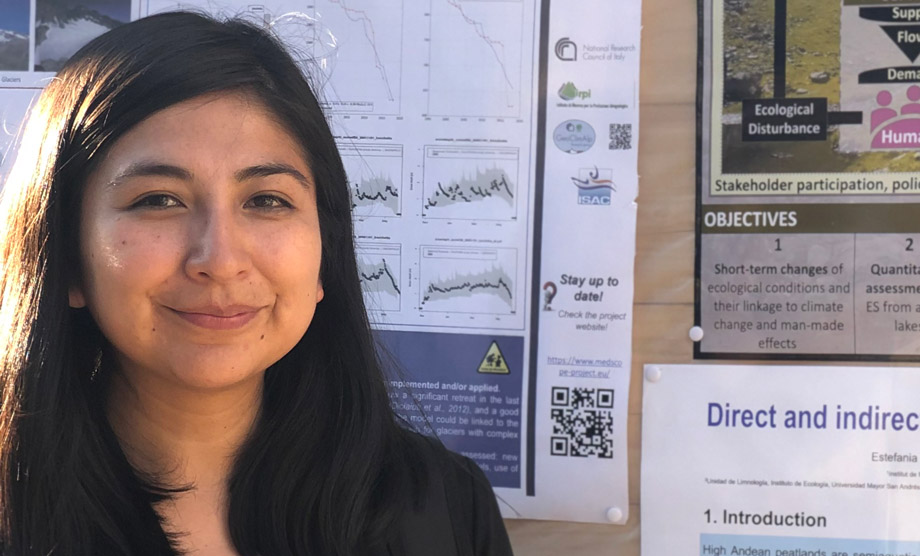 Estefania Quenta Herrera, Mayor de San Andrés University, Bolivia
Estefania Quenta Herrera, Mayor de San Andrés University, Bolivia
"In my homeland Bolivia large areas depend on the meltwater of the Andes glaciers. Two years ago, we had a critical situation of drought, notably in rural communities and in La Paz city. I want to make my knowledge available to politics and society through simple and clear communication. This training will help me a lot with this challenging endeavour."
Estefania's area of interest is the tropical Andes as an important biodiversity hotspot. With the retreat of glaciers, less and less water reaches the peatlands and thus threatens the sensitive ecosystem under extreme environmental conditions at 4500 meters and more.
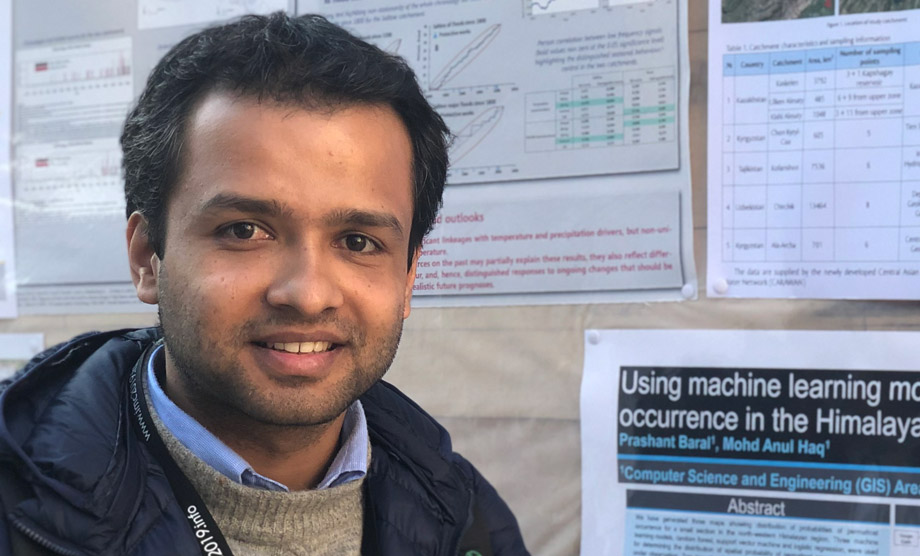 Prashant Baral, NIIT University, India
Prashant Baral, NIIT University, India
"It is a unique training opportunity that I believe I will never have again. For me, it was particularly valuable that we discussed our drafts for the systematic reviews, which we hope will then be included in the IPCC report. And I really enjoyed our trip to Central Switzerland in this wonderful weather!"
Prashant originates from Bhadrapur in the east of Nepal. Using satellite data, he develops models to compute where permafrost occurs in the Himalayas. The extensive thawing of permafrost has important effects on local slope stability.
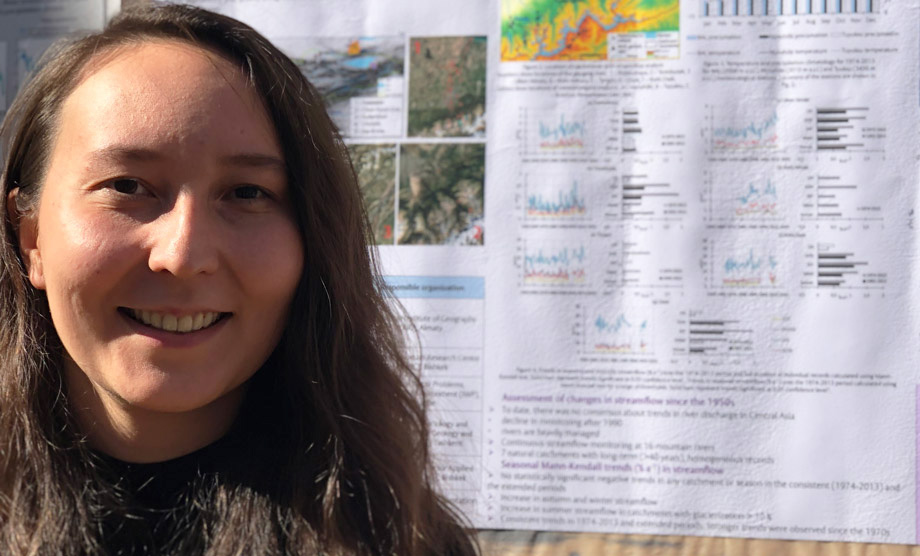 Zarina Saidaliyeva, Kazakhstan Institute of Geography, Almaty
Zarina Saidaliyeva, Kazakhstan Institute of Geography, Almaty
"Central Asia is like a blank spot on the map. Very little scientific information is available. With this training, I now know what the IPCC wants from me in order to contribute my knowledge. Science in Kazakhstan is more for men, but now women take more and more part. For me it was an intuitive choice to be one of them."
Zarina's research interests lie in mountain regions of Central Asia and the impact of climate change on solutions for securing fresh water in the glacier-fed catchment area.
About the Program
The Mentoring and Training Program in IPCC Processes for Early Career Mountain Researchers is one of four key outcomes under the SDC-funded project Contribution to the Sixth Assessment Cycle of the Intergovernmental Panel on Climate Change (IPCC), which is implemented though a collaboration between the MRI, University of Zurich, Helvetas, and ICIMOD. The project’s overall objective is to strengthen the evidence basis on climate change impacts, adaptation strategies, and climate resilient development pathways in mountain regions, while supporting regional representation and development focused science-policy dialogues, as well as capacity-building of experts in developing countries in the IPCC process.
To find out more, please refer to the project webpage.
This article is an edited version of a news item first published on the University of Zurich website, written by Magdalena Seebauer. You can view the original article here.




